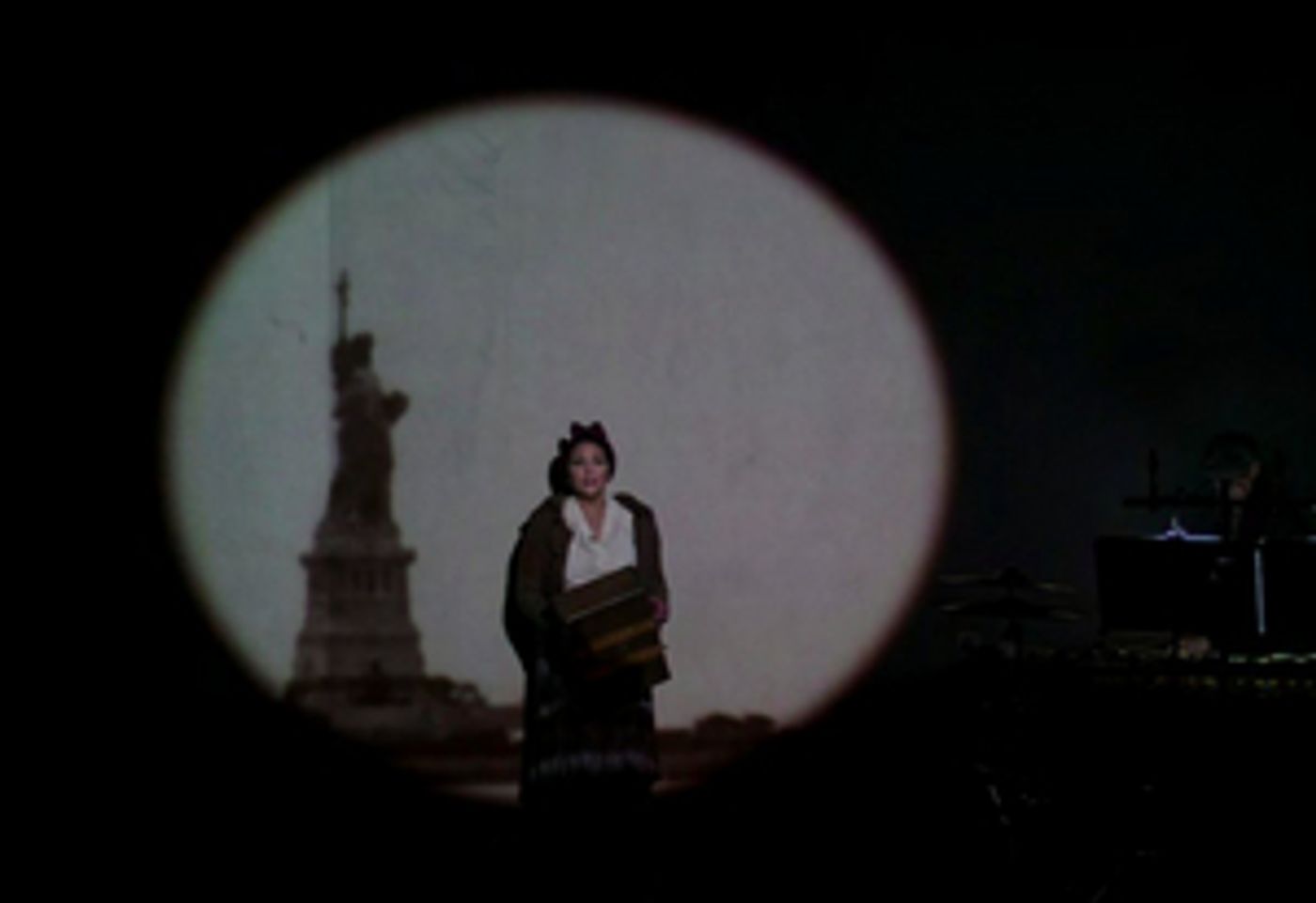Review: ISLAND OF HOPES, ISLAND OF TEARS (WORKING TITLE) at Guerilla Opera
A preview of a work in progress

Guerilla Opera's artistic director, Aliana de la Guardia, hosted a warmly informal Zoom preview of the company's current work in progress, Island of Hope, Island of Tears (Working Title) which served effectively as a promotion of a planned in-person workshop as well as an opportunity to engage in dialogue around the opera's themes. Fusing live performance with archival audio recordings and projected images of crashing waves and swooping seagulls, the piece aims to explore the realities of US immigration history through a contemporary lens.
I thoroughly enjoyed the format in which the work was presented. It felt like an artists' salon and it was an effective method to give a broad public a glimpse of a piece being actively created. Ultimately, I hold mixed responses both to the brief selections from the work in progress which were shared and to the conversations surrounding the work which I witnessed. The involved artists who spoke shared watery visions laden with buzz words- I stopped counting how many times we were told this work was timely, relevant, or resonant with contemporary audiences although those statements were never really backed up in any meaningful way. Passing references assured us that, though Ellis Island narratives are dominated by Eastern Europeans, the artists involved in this process and the message of the final piece will encompass the realities of broader swathes of cultural identities. It may well be a selling point for donors that this work of art can connect in some way to contemporary humanitarian crises at US borders, but in 2021, do we still feel the need to center the stories of white immigrants as a way to comment on predominantly Brown immigrants? Does this remain our only way to engage empathetically with these themes? Certainly this exploration is already a step ahead of Boston Lyric Opera's recent The Fall of the House of Usher, which sought to subvert Edgar Allan Poe's tale and, through what was possibly the most inane and out-of-touch artistic move out of Boston this season, retell it through the eyes of a young girl held in a US Immigration detention center. As this work propels toward 2022, is it engaging with its purpose in the most effective way?
Beyond this baseline question, I am unclear of what the piece is aiming to ask or aiming to say. A team of such esteemed artists with access to such extensive archives should be able to procure something that goes beyond an experience a tourist might expect at a roadside visitor's center. I am not convinced by the selections presented that this piece currently philosophizes or expounds upon the fundamentals of displacement, the human condition of being lost, or the flawed nineteenth century psychological construction of borders. Rather, it currently feels as though composer and electronic sound designer Gabriele Vanoni has been overwhelmed by an expanse of information and painted only with a wide brush. The recordings from the archives at present seem bluntly novel rather than evocative or eye-opening. Librettist Ewa Chrusciel has conjured some beautiful images which I hope are explored further in later versions. Boston opera fans will recall Boston Playwright Theatre's production of The Rosenbergs which, despite its historical subject, dove head first into poetry and speculation, delivering a narrative which could never be conveyed via biography or documentary film. It was nothing if not operatic. I hope Island of Hope, Island of Tears can find a similar footing, but currently I question what I get out of this performance that I would not learn from exploring Ellis Island's archives myself.
Picking up on the more metaphorical snippets within the text, video and stage director, Laine Rettmer, has landed a few stunning visual moments. A woman's silhouette procuring a tree from her luggage, the Statue of Liberty enclosed in a suitcase, a diminishing circle of film acting as a spotlight. Again, I hope these are expanded moving forward and the less specified messiness of black box performances- a percussionist pulling mallets out of an antique suitcase or stretches of nondescript film projections- are replaced.
There is a lot going on to suggest this opera in its final stages will be quite remarkable. There is also a long journey this work needs to take before I would call it remarkable. I am excited to see what will happen next.
Reader Reviews

Videos

